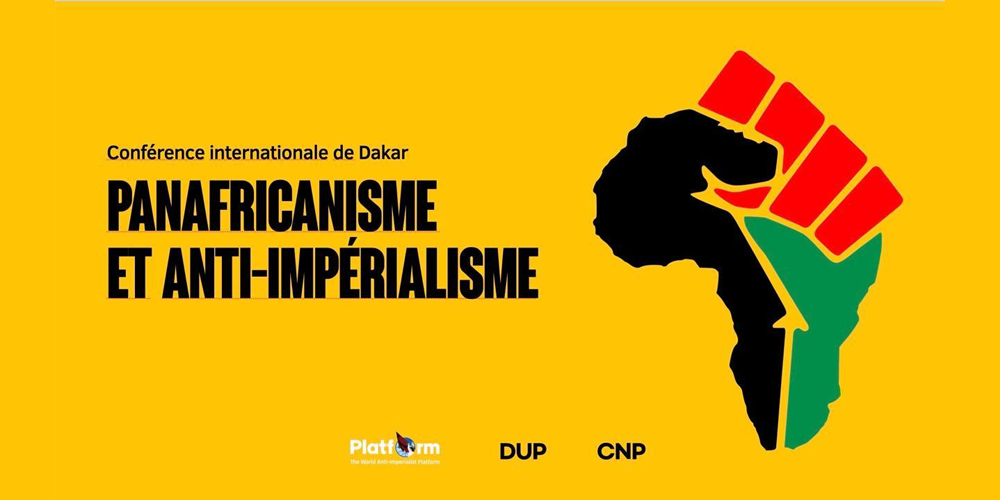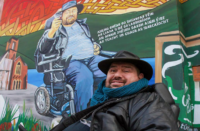While the Western bourgeois elite is slowly being overwhelmed by panic over the impending defeat of NATO in Ukraine, on other continents, the peoples of the world are raising their heads and taking advantage of the weakness of imperialism, demanding their rightful place in the arena of history. From 25th to 27th October 2024, an important conference was held in Dakar, Senegal, bringing together for the first time the pan-African, anti-colonial and Marxist movements. The meeting, organised by the DUP (Dynamique Unitaire Panafricaine), Comité National Préparatoire (CNP) and the World Anti-imperialist Platform (WAP) brought together anti-imperialist and Marxist-Leninist forces, referring to the tradition of the Three Continents Conference, which took place in Cuba in 1966.
This historic event took place on the 100th anniversary of the birth of legendary Guinea-Bissau leader Amilcar Cabral, often referred to as “Africa’s Che Guevara”, founder of the PAIGC (African Party for the Independence of Guinea and Cape Verde). Amilcar Cabral, in a memorable speech at the Three Continents Conference in Havana, outlined the basic goal of the national liberation movements, namely “to recover the right, usurped by the domination of imperialism, to unleash the process of development of national productive forces.” Iancumba Djola N’Djai of the PAIGC, who was present at the Dakar conference, reiterated that this goal is just as relevant today.
More than 30 African delegations arrived in Dakar, including those from Senegal (Ferñent), Gabon, Togo (CODITOGO), Cameroon (UPC – Manidem), Congo, Burundi (CNDD), Ghana, Guinea-Bissau (PAIGC), Mauritania, Comoros (Suluhu), Tanzania, Kenya (CP of Kenya), Burkina-Faso, Benin (OPAO-WAPO) and Niger. The African Democratic Front was also present. For many, it was the first opportunity to meet and exchange experiences. The Asian continent was represented by delegations from Korea (PDP), Pakistan and Kyrgyzstan. From Europe came representatives from 12 countries.
In recent years, Africa has become the setting of extremely important events. Historic victories were won by the popular masses in Mali (2020), Burkina Faso (2022), and Niger (2023), who expelled French and US colonial troops and withdrew from the imperialist ECOWAS (Economic Community of West African States) union, forming a new alliance, the Union of Sahel States. In Senegal, in 2024, a labour and popular movement overthrew the fascist, neo-colonial order that had prevailed there for 12 years, with thousands of fighters for national and social liberation. In Kenya, also this year, thousands of young people led by the Communist Party of Kenya stood up to the neoliberal regime of William Ruto in what is now known as the “Gen Z Uprising”, winning a historic victory. The fighting resulted in the deaths of more than 75 people. It is clear that the African continent is boiling over. Its people are fed up with poverty and neo-colonialism. They demand control over their own land and their own natural resources.
Conference participants paid tribute to Lamine Senghor, also called “Africa’s first communist” and Thomas Sankara, the legendary communist leader of Burkina-Faso, who has become a symbol of pan-Africanism. They also called for the release of George Ibrahim Abdallah, a fighter for the Palestinian cause who has been held in a French prison on the orders of the CIA for 40 years.
Today, the world is divided into two camps: the camp of Western imperialism and its allies, and the rest of the world. Those gathered agreed that the struggle against imperialism must be at the same time a struggle for economic sovereignty, and that action should be taken at the national level, taking into account the particularities of each country. The struggle for the workers’ cause is therefore inextricably linked to the national liberation struggle of oppressed peoples. Its goal is to liberate the development of the productive forces that are deliberately kept underdeveloped by Western colonialism and neo-colonialism.






